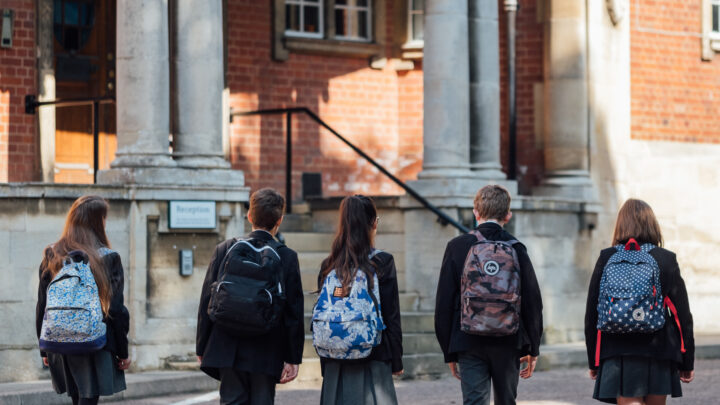Drama

Year 7 and 8 Exploration
In Year 7 and 8, students study Drama for 1 hour per fortnight and focus on developing confidence, public speaking skills, team work and communication skills and performance ability. Each lesson, students will develop the ability to discuss current affairs with sensitivity, develop and demonstrate the skill of empathy and explore what it means to be human. Students will be assessed on a different element of Drama and Theatre once per term.
Year 7
With a heavy focus on building confidence and communication skills, Year 7 Drama teaches three units of work across the year.
- The Drama Toolkit: Students create, explore, rehearse and perform their own character monologues, developing their confidence and public speaking skills.
- Page Meets Stage: Students study extracts from a published play, interpreting character to create meaning onstage, learn lines off by heart and perform and work together in groups.
- Devising: Students work in groups to devise their own performances using a variety of stimulus, creating performance that is impactful, effective and sensitive to its topic.
Year 8
Year 8 Drama continues to help students develop important interpersonal and transferable skills, alongside improving their performance ability, voice projection and collaboration.
- Theatre in Education: Students work in groups to devise their own informative performances based on current affairs, raising awareness of their chosen topic.
- Scripted: Students study extracts from a published play, interpreting character to create meaning onstage, learn lines off by heart and perform and work together in groups. As well as looking into some technical theatre. Students explore and experiment with the technical side of theatre, learning the roles and responsibilities of theatre makers, explore staging configurations and consider costume, sound, set, lighting and props for performance.
- Devising from a stimulus: Students work in groups to devise their own performances using a variety of stimulus, creating performance that is impactful, effective and sensitive to its topic. Students explore and experiment with the technical side of theatre, learning the roles and responsibilities of theatre makers, explore staging configurations and consider costume, sound, set, lighting and props for performance.
Year 9 Excitement
Areas of study include:Year 9 provides the opportunity to develop confidence, communication skills and performance abilities. It includes consideration of a variety of areas from script work to stage combat and physical theatre. There is a specific focus on skill development.
Devising:
creating your own original theatre
Script work:
performing published plays and writing your own performances
Practitioners:
Using different theatre practitioner methods to comminute meaning in a performance
Year 10 (GCSE) Expertise
Year 10 further develops wider skills such as working within and leading a team, public speaking, debate and communication skills.
Component One: Understanding Drama
At the end of Year 10 students will see and review a Live Theatre production.
Component Two: Devising Drama
Students create new and original performances through workshops and rehearsals. They will need to be able to develop ideas, collaborate with others and analyse and evaluate the process of creating devised drama. Students will complete a final performance and support this with a written devising log that documents the devising and rehearsal process.
Year 11 (GCSE) Expertise
Component Three: Texts in Practice
Students will explore, rehearse and perform two extracts from a published play. They will need to be able to: interpret texts, create and communicate meaning and artistic intention in text-based drama.
Year 11 ends with a final, written examination that tests knowledge of theatre, texts, plays and Live Theatre productions. Overall, the course is 70% written work and 30% practical work.